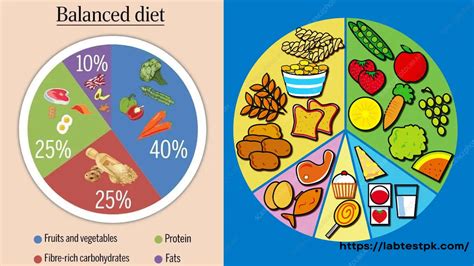Optimize daily nutrition for men’s sustained energy & mental clarity?

For men navigating demanding careers, active lifestyles, and family responsibilities, maintaining optimal energy and mental sharpness is paramount. While exercise and sleep play crucial roles, the foundation of these critical functions often lies in daily nutritional choices. By understanding and implementing a targeted dietary approach, men can significantly boost their vitality and cognitive function, moving beyond just ‘getting by’ to truly thriving.
The Cornerstone of Sustained Energy: Macro-Nutrient Balance
Achieving consistent energy levels throughout the day starts with a balanced intake of macronutrients: protein, carbohydrates, and healthy fats. Each plays a distinct yet interconnected role in fueling the body and brain.

Protein: Muscle Repair and Steady Fuel
Protein is essential not only for muscle growth and repair but also for producing enzymes and hormones critical for energy metabolism. Adequate protein intake helps stabilize blood sugar, preventing energy crashes. Include lean sources like chicken breast, fish, eggs, lean beef, legumes, and Greek yogurt in every meal.
Complex Carbohydrates: Brain’s Preferred Fuel
While often maligned, complex carbohydrates are the brain’s primary energy source. Unlike simple sugars, they are digested slowly, providing a sustained release of glucose into the bloodstream, which is vital for continuous mental clarity and focus. Opt for whole grains such as oats, brown rice, quinoa, whole-wheat bread, and an abundance of fruits and vegetables.
Healthy Fats: Brain Power and Hormone Regulation
Healthy fats are crucial for brain health, cell membrane integrity, and hormone production, all of which impact energy and mood. Omega-3 fatty acids, found in fatty fish (salmon, mackerel), flaxseeds, and walnuts, are particularly beneficial for cognitive function and reducing inflammation. Other good sources include avocados, nuts, seeds, and olive oil.
Vital Micronutrients for Peak Performance
Beyond macros, a spectrum of vitamins and minerals are critical cofactors for energy production and neurological function.

B Vitamins: The Energy Powerhouses
B vitamins (B1, B2, B3, B5, B6, B7, B9, B12) are directly involved in converting food into energy. A deficiency in any B vitamin can lead to fatigue and impaired cognitive function. Rich sources include whole grains, lean meats, eggs, dairy, leafy greens, and legumes.
Magnesium: Muscle and Nerve Function
Magnesium is involved in over 300 enzymatic reactions, including energy production and nerve transmission. Low levels can manifest as fatigue, muscle cramps, and difficulty concentrating. Incorporate foods like spinach, almonds, black beans, avocados, and dark chocolate.
Iron: Oxygen Transport and Energy
Iron is vital for red blood cell production, which carries oxygen throughout the body, including to the brain. Iron deficiency can cause severe fatigue and brain fog. Good sources include red meat, poultry, fortified cereals, and dark leafy greens. Pairing iron-rich foods with vitamin C (e.g., bell peppers, oranges) enhances absorption.

Zinc: Immunity and Cognitive Function
Zinc plays a role in immune function, hormone balance (including testosterone), and neurotransmitter activity, all contributing to overall energy and mental health. Oysters, red meat, poultry, beans, and nuts are excellent sources.
The Indispensable Role of Hydration
Often overlooked, adequate hydration is fundamental for every bodily function, including energy production and cognitive clarity. Even mild dehydration can lead to fatigue, headaches, and impaired concentration. Aim to drink plenty of water throughout the day, and limit sugary drinks and excessive caffeine.

Practical Strategies for Daily Nutritional Optimization
Translating nutritional knowledge into daily habits is key. Here are some actionable steps:
- Prioritize Whole Foods: Base your diet on unprocessed or minimally processed foods.
- Regular Meal Timing: Eat consistent meals and snacks to maintain stable blood sugar and energy levels. Avoid skipping meals.
- Mindful Eating: Pay attention to hunger and fullness cues, and eat without distractions to improve digestion and satisfaction.
- Limit Processed Foods & Sugars: These provide quick energy spikes followed by crashes and offer little nutritional value.
- Plan Ahead: Meal prepping or planning your meals can ensure you have healthy options readily available.

Conclusion: A Holistic Approach to Men’s Wellness
Optimizing daily nutrition is a powerful lever for men to unlock sustained energy and sharp mental clarity. By focusing on a balanced intake of protein, complex carbohydrates, healthy fats, and vital micronutrients, alongside consistent hydration, men can build a resilient physiological and cognitive foundation. Remember, nutrition is not a standalone solution; it works in concert with adequate sleep, regular exercise, and stress management to support a truly optimized and thriving life.








